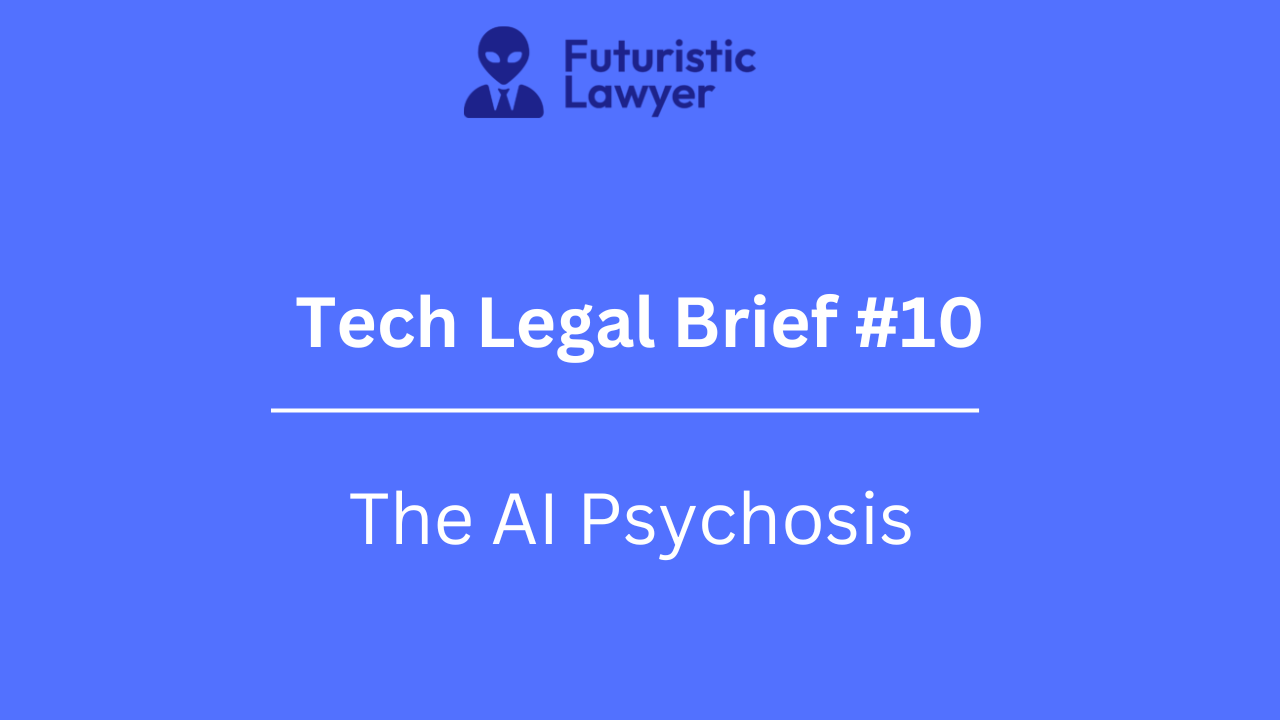Tech Legal Brief #10 – The AI Psychosis
+ major adult entertainment company sues Meta & the challenge of age verification.
Welcome to the 10th edition of my newsletter concept “Tech Legal Brief”.
Here, we get up to speed on developments in the space I cover with links to other people’s work and my unfiltered commentary.
Currently, I spend much of my days working on a major writing project that I aim to publish towards the end of this year. I hope it will spark a reaction, cha…




